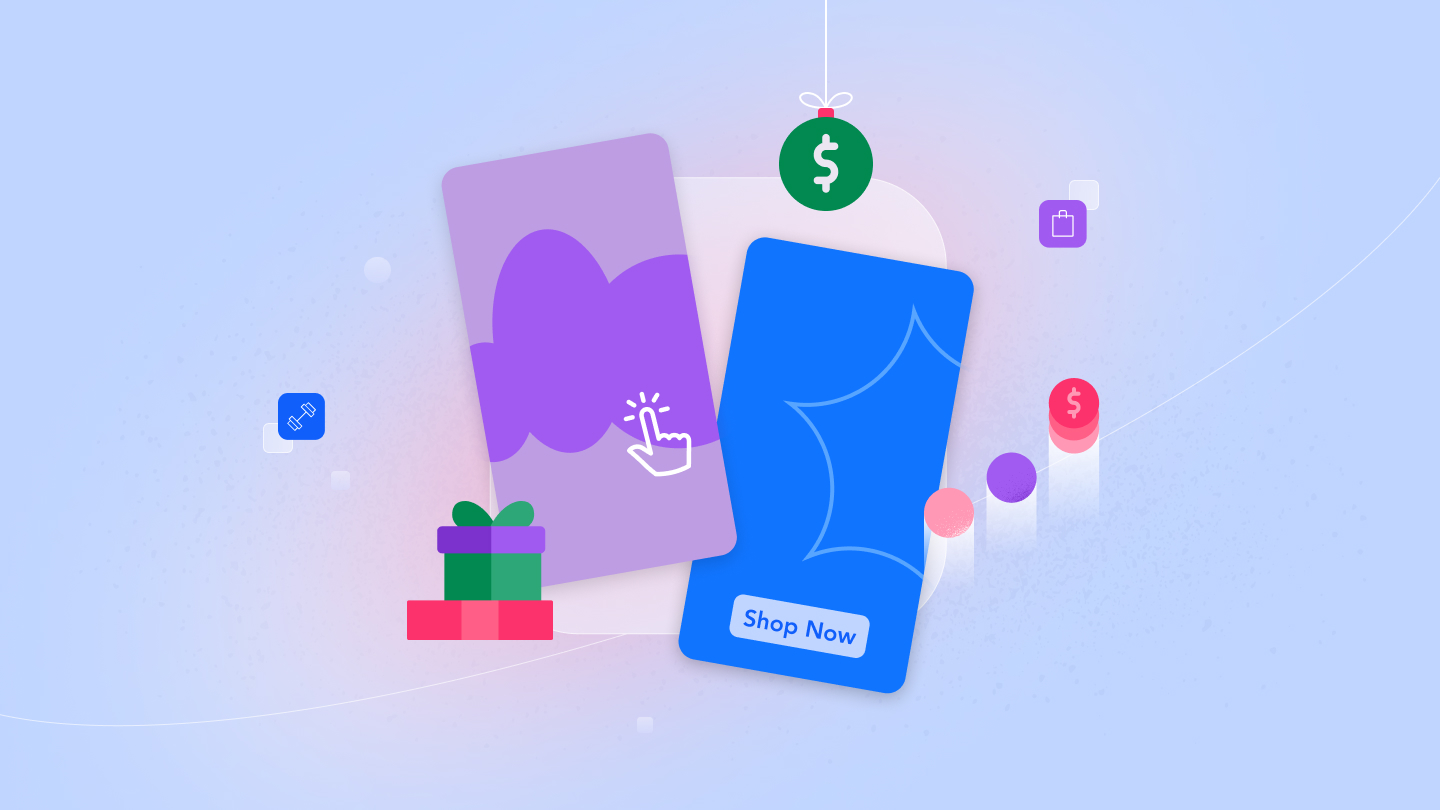The App Store turned 10 this month, and to celebrate, we took a walk down memory lane to see how it transformed the gaming industry. Our infographic highlights the most iconic and important games that emerged from the App Store. Additionally, we explored where the App Store could end up in another 10 years.
But the App Store is much more than just games, so we reached out to people from various trades to see how the App Store has impacted their industries. The responses we received show just how much Apple shaped the world in which we live today.
Candace Locklear – Co-founder, Mighty PR
 “The Apple App Store has completely influenced the way we work, live, and play if you own an iOS device. These days, tech companies get cracked on when making lofty claims about how technology will drastically change the world, but this is one major example of how that actually came true.
“The Apple App Store has completely influenced the way we work, live, and play if you own an iOS device. These days, tech companies get cracked on when making lofty claims about how technology will drastically change the world, but this is one major example of how that actually came true.
I remember working in the mobile industry in the early 2000s, and many of us were just wishing Apple would go ahead and make a damn phone. I’ll never forget convincing my boss over at Sparkpr to let me basically take the day off to stand in line at the Apple flagship store in downtown San Francisco to buy the first iPhone. At the time, I was doing PR for both EA Mobile, the leader in mobile games built in javascript, and GetJar, a precursor to the App Store as we know it today. GetJar helped users find the right versions of apps and games for their devices, which were largely Nokia phones.
Finding apps was hard. Now, every brand has an app. In one day, I use about 10 different apps, including Facebook, Lyft, Waze (which I helped launch alongside AppLovin’s Michael Selvidge), Slack, WhatsApp, Instagram, and Calm, a new meditation app that rocks. I become completely out of reach and basically emotionally unhinged if my phone goes missing because I am so dependent on those apps. It has helped me meet new people, find fine restaurants, locate my busy teenager, book cheaper but still nice hotels, and stay productive (especially since my clients require me to have at least four messaging services going at all times). Life without apps is hard to imagine, but the addiction is real.”
Tatyana Bogatyreva – Head of UA, Gram Games
 “The Apple App Store has transformed free-to-play gaming into a viable and scalable business, immensely boosting the developer, advertising, and ad tech spheres. From hyper-casual and viral hits to battle royale stalwarts and indie breakthroughs, every day its app diversity broadens the global gaming audience and tilts the console-desktop-mobile paradigm into valiant realms of eSports, VR, and AR. Let’s see what’s next!”
“The Apple App Store has transformed free-to-play gaming into a viable and scalable business, immensely boosting the developer, advertising, and ad tech spheres. From hyper-casual and viral hits to battle royale stalwarts and indie breakthroughs, every day its app diversity broadens the global gaming audience and tilts the console-desktop-mobile paradigm into valiant realms of eSports, VR, and AR. Let’s see what’s next!”
Fabien-Pierre Nicolas – Head of US Marketing, SmartNews
 “Apple’s App Store created a dramatically different app discovery experience compared to earlier attempts by Nokia and others. By providing an easy-to-navigate experience with defined design guidelines, Apple empowered developers to easily reach millions of users globally. This democratization of app discovery has lead to huge opportunity and wealth for developers around the world.
“Apple’s App Store created a dramatically different app discovery experience compared to earlier attempts by Nokia and others. By providing an easy-to-navigate experience with defined design guidelines, Apple empowered developers to easily reach millions of users globally. This democratization of app discovery has lead to huge opportunity and wealth for developers around the world.
U.S. tech leaders have benefited from this global reach, but now many Asian companies in Japan, China, and Korea are able to expand to the West. To support this, Apple’s review process offers a safe environment for both consumers and developers by protecting brand IP from copycats at home and abroad.”
Winnie Wen – Director of User Acquisition, Jam City
 “We’ve watched the App Store evolve from a closed ecosystem of pre-installed apps to an open market space which favored early developers as they had the first mover advantage with minimal competition and a captive audience; segue to the present, where it has become extremely competitive due to over saturation. It is now difficult and costly for developers to acquire a qualified user and even after acquiring users, there’s the challenge of retaining since there’s always something new and shiny. As a result, user acquisition, too, has evolved and matured from bursting strategies to strategic performance marketing. I’m eager to see how the industry will continue to evolve as we balance the challenges of oversaturation and organic app discovery.”
“We’ve watched the App Store evolve from a closed ecosystem of pre-installed apps to an open market space which favored early developers as they had the first mover advantage with minimal competition and a captive audience; segue to the present, where it has become extremely competitive due to over saturation. It is now difficult and costly for developers to acquire a qualified user and even after acquiring users, there’s the challenge of retaining since there’s always something new and shiny. As a result, user acquisition, too, has evolved and matured from bursting strategies to strategic performance marketing. I’m eager to see how the industry will continue to evolve as we balance the challenges of oversaturation and organic app discovery.”
Anne Nguyen – M.S.Ed in Communication Sciences and Disorders
 “While games and entertainment apps may get most of the spotlight, the App Store has had a profound impact on education and therapy. Before the App Store, software for education and therapy was prohibitively expensive and intimidating. By offering software on hardware that people already use like the iPhone and iPad, therapy apps have become much less intimidating, more creative, and effective. The App Store has opened up access to therapy tools to the masses, which complement existing methods and tools. Furthermore, clinicians themselves have a new medium to create and distribute apps that bridge the gap between a clinical setting and the home.
“While games and entertainment apps may get most of the spotlight, the App Store has had a profound impact on education and therapy. Before the App Store, software for education and therapy was prohibitively expensive and intimidating. By offering software on hardware that people already use like the iPhone and iPad, therapy apps have become much less intimidating, more creative, and effective. The App Store has opened up access to therapy tools to the masses, which complement existing methods and tools. Furthermore, clinicians themselves have a new medium to create and distribute apps that bridge the gap between a clinical setting and the home.
Developers are recognizing that people are now learning and communicating in different modalities. Literacy, for example, is not limited to hardback books and writing on paper. We have social media access in virtual classrooms you can join by downloading an app. You can get tutoring in any subject from kindergarten through college. There are apps that teach parents how to foster language development at home. In schools, there’s a push to be competent with technology. We’re teaching our children how to multitask and to be resourceful. In therapy, rehabilitation focuses on using technology because it acts as a way to compensate for any physical or cognitive abilities. It’s a powerful outlet that helps people connect and learn skills they have previously lost, and the App Store has had a profound impact making these tools accessible.”
Josh Burns – Founder of DigitalDevConnect
 “I was working in the casual game realm during the launch of the App Store at one of the larger video game companies in the world. At that time, mass-market gaming was really focused on games played in your web browser monetized via ads, sometimes subscriptions, and pay per download. With the launch of games and apps on Facebook a few years before the App Store, and then the launch of the App Store as well as the Google Play store shortly thereafter, to say there was disruption to the mass market game space is an understatement.
“I was working in the casual game realm during the launch of the App Store at one of the larger video game companies in the world. At that time, mass-market gaming was really focused on games played in your web browser monetized via ads, sometimes subscriptions, and pay per download. With the launch of games and apps on Facebook a few years before the App Store, and then the launch of the App Store as well as the Google Play store shortly thereafter, to say there was disruption to the mass market game space is an understatement.
Suddenly people could play games away from their computer, whether at home or on the go. This caused a significant exodus from the leading casual game web portals and a parallel decline in revenue. Industry incumbents were forced to compete against nimble startups that siphoned their key talent on the design and development side of things. It was also hard for incumbents to move quickly enough as these new platforms were always changing in terms of policies and user preferences. Nimble startups, on the other hand, could build content quickly and no longer had to worry about gatekeepers for releasing content to a global audience of scale in real time. It was truly a transformational time for the casual and mass market game industry.”
Josh Nilson – CEO, East Side Games
 “The App Store has been a game changer for independent game developers. We are able to get our fan-driven games out quickly and tell our stories. It has given indies the opportunity to self-publish and communicate directly with players. Our studio made desktop games for years, and we’re really excited at this opportunity to put our game in everyone’s pocket to play anytime or anyplace.”
“The App Store has been a game changer for independent game developers. We are able to get our fan-driven games out quickly and tell our stories. It has given indies the opportunity to self-publish and communicate directly with players. Our studio made desktop games for years, and we’re really excited at this opportunity to put our game in everyone’s pocket to play anytime or anyplace.”
Nathan Slavik – Co-founder & Head of Content, Quality Produce
 “Today, apps are so prevalent they’re often verbs. We don’t grab a ride, we Uber. We don’t share pictures, we Snap. We don’t watch video, we Netflix (and perhaps chill).
“Today, apps are so prevalent they’re often verbs. We don’t grab a ride, we Uber. We don’t share pictures, we Snap. We don’t watch video, we Netflix (and perhaps chill).
In just a decade, the Apple App Store has become a portal that has changed the ways people relate to businesses, each other, and technology. For decades, software was an investment, a product to be purchased at a store and then placed on a desk. Now, with a couple of taps, you can discover software to fulfill almost any task and instantly put it in your pocket, then discard just as instantly if desired.
That’s been such a fundamental shift in the way people relate to software that it can almost be hard to recognize—a mobile forest in the trees—and the App Store was the catalyst. In retrospect, Apple was visionary to an extent that perhaps not even they anticipated. Now, wherever you are, whatever you need, there’s an app for that.”









